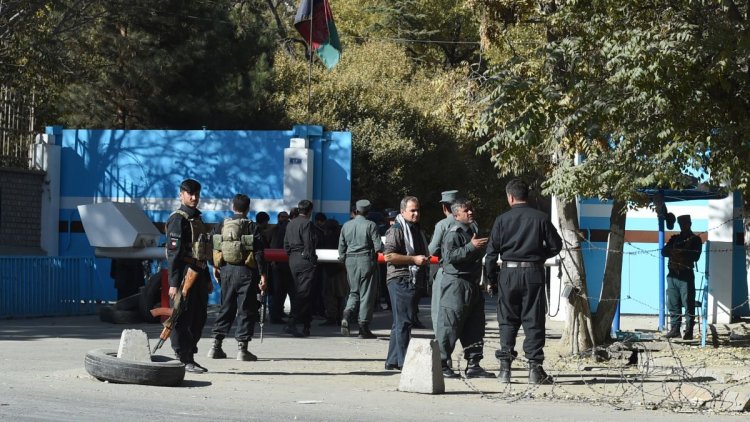Outrage Over IS Links To Kabul Student Killings

Kabul: In an attack by gunmen on Kabul University, one of Afghanistan's oldest and most popular institutions, over 20 students were killed. The assault on young men and women trying to build a future for themselves and their country has shaken the city's residents and caused outrage. It's hard to comprehend who could commit such cold-hearted murders.
The Islamic State group has claimed responsibility, releasing a photograph of two masked attackers, who, it said, targeted a ceremony for "the graduation of judges and investigators".
IS is the latest player to emerge in the murky world of militants in the country, further complicating the already bloody war between the Afghan government and Taliban insurgents. It's far less powerful than the Taliban and recently lost most of the territory it once controlled in the east of the country, but it retains the ability to carry out deadly attacks.
Both the Taliban and the government have fought against IS and both regard it with suspicion, accusing each other of secretly supporting the jihadists and using them to undermine slow-moving peace talks.
That war of narratives over IS has come to the fore in the aftermath of this awful attack.
Amrullah Saleh, the first vice-president of Afghanistan, and a vocal critic of the Taliban, described the IS statement as "fake", stating that the weapons found at the scene do not match those in the photo released by IS. Mr Saleh also pointed to a "Taliban flag" apparently found at the scene of the attack as evidence that the Taliban - rather than IS - carried it out.
Journalists visiting the site took photographs of the specifically pro-Taliban slogan "Long live the Emirate" scrawled on the bullet-ridden wall of a classroom.
There was a further mysterious development, when a video was uploaded to the internet, purportedly of masked IS militants denying they were involved in the attack, and blaming the Taliban.
Most experts, however, agree the video is a fake. And it remains unclear why, if the Taliban wanted to avoid association with the attack, they would bring a flag with them to the scene.
Taliban spokesman Zabiullah Mujahid issued an angry rebuttal, asking: "How is it possible for assailants to find the time to draw graffiti on walls while being engaged in combat? And what purpose would taking a flag to attack site serve?"
A Taliban statement condemned the attack, and accused the government of supporting IS, suggesting it had encouraged the group to stage the assault for "propaganda" purposes. The Taliban's criticism of the violence rings rather hollow, however, as they are widely believed to have carried out an assault on another university in the city in 2016, in which 13 people were killed.
Borhan Osman, a senior analyst who has conducted extensive research into the Afghan conflict, told the BBC that both sides have "strongly held" narratives about IS but there has been no real evidence substantiating the claims advanced by either the Taliban or the government.
The counter-accusations mirror similar claims by both sides about IS in the past too.
Supporters of the government have often accused the Taliban of carrying out attacks on "soft targets" but deliberately not claiming them, and allowing IS to take responsibility instead, in order to benefit from the chaos of the violence whilst avoiding the public backlash.
There is something of a precedent for this: suicide attacks with large numbers of civilian casualties, widely thought to have been carried out by the Taliban, and its affiliated Haqqani network, have at times gone unclaimed.
However, the Taliban have fought fiercely against IS in eastern Afghanistan, determined not to allow them to usurp their position in the insurgency. The Taliban have claimed the Afghan government helped rescue IS fighters during clashes between the two militant groups in the north. Afghan officials deny that.
There's no doubt that the conflict with the Taliban saps some of the energy that the government could be expending on tackling IS, and for a war-weary public, divisions between the militants seem irrelevant in the face of widespread violence.
Security officials in Kabul also have said they believe, despite the Taliban's rivalry with IS, that the two groups tap into the same logistical support networks when carrying out attacks in the city.















































